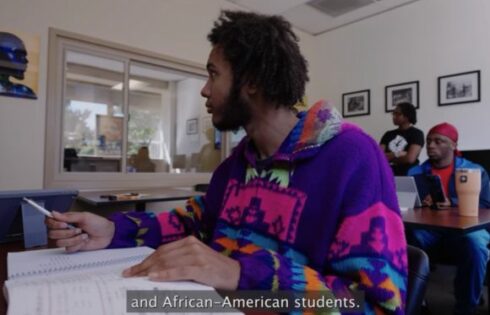
Science needs transparency, not politicized identity statements, psychology professor wrote
Research authors’ identity disclosures have become common in the social sciences, but such “positionality statements” should stay out of publications, according to a psychology professor.
Some academic journals have begun requiring such statements “in which scholars declare identity categories to which they belong and indicate how such categories might bias their research,” psychologist and Stetson University Professor Christopher Ferguson wrote April 4 in The Chronicle of Higher Education.
“Positionality,” in social justice usage, refers to a scholar’s background and social position and implies that these factors play a role in “the production of academic knowledge,” according to the Encyclopedia of Diversity and Social Justice, quoted by the anti-woke website New Discourses.
“Like diversity, equity, and inclusion statements, positionality statements are consistent with a progressive worldview that emphasizes power, oppression, and conflict, and conceives the research endeavor as an unfair process that disadvantages minority groups,” Ferguson (pictured) stated.
In other words, scholars who promote “positionality statements” think that being a woman or a man or a black person or a white person, to cite a few examples, might affect or change a person’s research. Therefore, ethical researchers should state their identities up front in order to give their readers the full picture.
Some academic publications require these statements of identity; in others they are recommended, according to Ferguson.
“In July 2020, Journal of Women and Minorities in Science and Engineering (JWM) started requiring a positionality statement in each paper published,” scholars Julie Martin and Renee Desing of Ohio State University and Maura Borrego at University of Texas at Austin wrote in a 2022 issue of the same journal.
“Investigation of positionality in this way offers opportunities for disrupting privilege and bias,” the journal authors continued. “Engaging in the process of reflection offers the opportunity to examine the impact of our research decisions through the lens of our social identities.”
Ferguson argued, however, that such statements may not actually reduce bias in science and might create more problems than they purport to solve.
“If we accept that our identities can sometimes blind us to the experiences of others, it’s unclear that leaning into identity more is the appropriate fix,” he wrote.
For one thing, it’s not clear how a person’s complex identity would tip them towards any given finding conclusively, Ferguson stated. For example, as a person of Irish as well as English ancestry, it is unclear how a “positionality statement” would predict his leanings in a paper on 20th-century Irish terrorism, he wrote.
Even more, identity might be a distraction from serious, demonstrated causes of bias in science, according to Ferguson. Research shows that scientists are primarily driven by publication bias — the pressure to publish only positive research that confirms their theories, and neglect research that points in other directions, he wrote Ferguson wrote.
To make research results more reliable and less prone to wishful thinking, scientists should practice “open science” by making their materials and data transparent to all, he argued.
“There is considerable evidence that open science is consistent with values of diversity and justice, and is effective in increasing the rigor of the scientific method and public trust in science,” Ferguson wrote. “Further, positionality statements frequently adopt the default assumption that science is…’white, male, elite, and Western,’ an accusation that itself appears biased, given that modern science is a comprehensively global phenomenon and by no means an exclusively male one.”
Even more, “positionality” statements also imply that some identities are more suspect or inappropriate for certain kinds of research. For example, someone who believes in the value of such statements might suspect a male scientist who confesses his sex in the introduction to his paper about ovarian cancer, which only affects women. But this sort of suspicion or bias “merely inverts the racism of previous generation of scientists,” Ferguson wrote.
Like the version of “antiracism” popularized by Ibram Kendi, “positionality statements” imply that the solution for discrimination in one direction is discrimination in another direction. As Ferguson rightly notes, that only flips the problem. It also denies the reality that science is an international, universalist enterprise, and gets in the way of more productive ways of overcoming bias.
“Like DEI statements, positionality statements are rhetorical documents, functioning less to decrease bias than to establish a scholar’s adherence to an approved ideology,” Ferguson wrote.
“What is needed to combat bias is more rigorous and transparent research, not political loyalty oaths.”
MORE: UC Berkeley biology professors continue use of ‘anti-racism’ teaching guide
IMAGE: Stetson Unviersity
Like The College Fix on Facebook / Follow us on Twitter





Please join the conversation about our stories on Facebook, Twitter, Instagram, Reddit, MeWe, Rumble, Gab, Minds and Gettr.